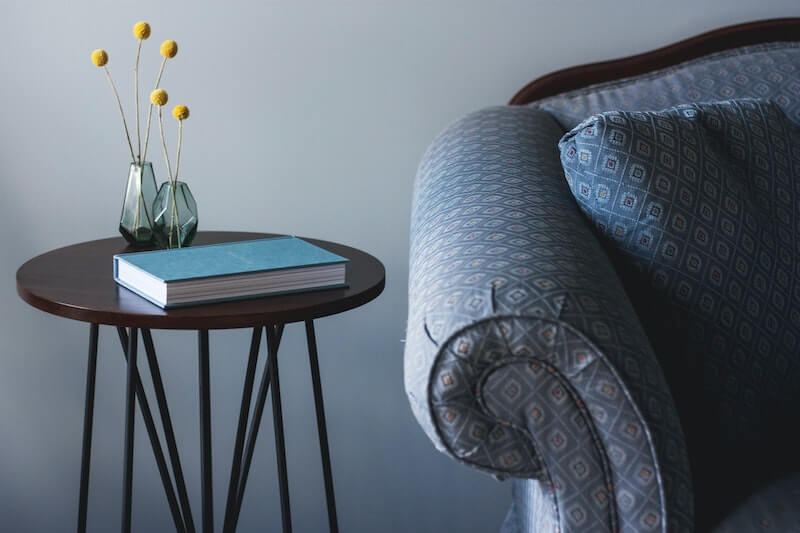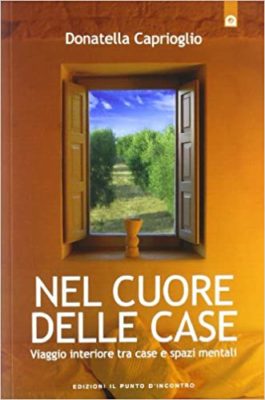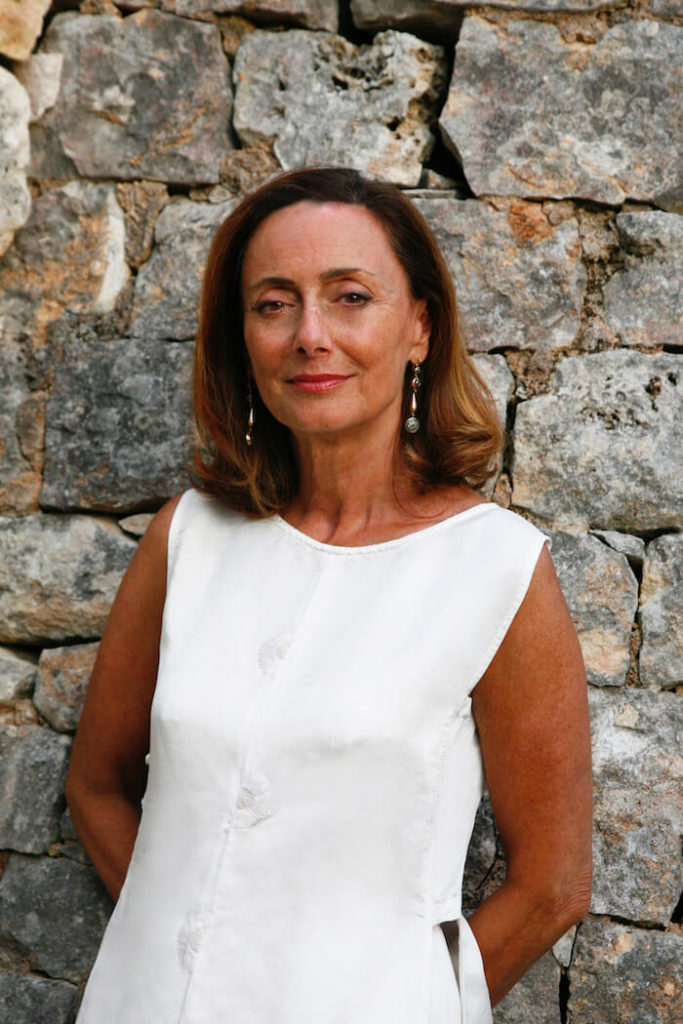
A huge thanks to our dear friend Angela Iacobellis who conducted for Expatclic the insightful interview to the child developmental psychologist, Donatella Caprioglio, about the psychology of living spaces, and much more.
Let’s start from the basics: what is the Psychology of living spaces?
The psychology of living spaces is both the examination of the way we live in our houses and how we answer to the question “where is our home?”. This is a tough question for expatriates.
 I am a wanderer myself, I have lived in three different places: France, Veneto, and Puglia.
I am a wanderer myself, I have lived in three different places: France, Veneto, and Puglia.
My observations as a child development psychologist and psychotherapist are inspired by the “neurosis” I experience myself, because of my wandering.
A “lucky” wandering I might say, rich in knowledge and discovery, that pushed me to ask myself where my home is. This is how I started writing the book “Nel cuore delle case” (“In the heart of the houses”).
The psychology of living spaces is an interesting topic for many architects as it shows how the interior space of the house represents the mental space of its inhabitants.
When we enter somebody’s house we can really see the person. Many people I met throughout my working experience were not inhabiting their homes because they were not living according to their needs, they were not “living themselves”. This is the reason why I coined the term “to inhabit/to live in oneself”.
During my work, I have witnessed also the pathology of the inhabiting: People spending time at home with apathy, not enjoying it, or simply having no functional spaces because they were not listening to themselves or to their needs. This is a pity because the house is a powerful tool for personal therapy. It is not surprising that we start cleaning the house, tidying up our closets, and decluttering when we feel down. In these moments we are fixing ourselves. Our home benefits from an organisation that is especially internal so that the house becomes a therapeutic object.
Understanding our needs and, by doing this, giving ourselves the possibility of choosing our own house becomes crucial. Especially for people traveling and moving repeatedly, it’s important to inhabit a house structured in the way they like it.
 Your writings examine deeply the process of building one’s identity. In an itinerant lifestyle, what kind of identity one can develop?
Your writings examine deeply the process of building one’s identity. In an itinerant lifestyle, what kind of identity one can develop?
A multiethnic identity. People embracing this path of life are more open-minded. It is an identity that immediately jumps out at first sight. The encounter with different worlds amplifies their mental space, enriches their identity with more tools to face life.
In this sense, I believe the house plays an important role, metaphorically speaking. I am not talking about physical walls, but rather about wondering if our condition meets our needs and therefore becoming aware of our needs.
Many people do not ask themselves what they want, what they like. But we must not neglect our own wishes and, at least for what concerns our home, ask ourselves: How do I want my house to look like?
Leaving your own home can be an emotionally demanding step…
Precisely, emotionally critical: it is the multiplicity of emotions you are leaving behind, you rejoiced, you cried in there, to the point that your house has a soul, and that’s your soul. I always suggest having a farewell ritual and an arrival ritual. A Parisian doctor and shaman, a friend of mine, recommended it to me when I could not enter my house in Venice after my mother passed away. I had changed it all and he advised me a ritual.
There is some magic in rituals and you must have some magic in yourself in order to trust it, like kids. This ritual consisted of going from room to room burning some dry sage. Despite being a very pragmatic person, I needed an anchor, even an imaginary one, and I believed in it. And it worked. A ritual for kids could be saying goodbye to the house, one for adults could be entering a new place with a candle in order to create a bond. As in the past, the priest blessed new houses. We need rituals.
It is not something for children, it is a very wise idea. We fill houses with emotions, and when the time comes, we should say goodbye in a proper way. Relocation processes are characterised by the highest rates of depressions, incidents, and fatigue. Moving is not easy, it is not only physical fatigue but mental as well. For this reason, we need to dig into that.
 In your work, you say that moving is always a revolution. Relocation is spatial disorientation, a series of losses of one’s own habitual coordinates, neighbours, shops, routes. The loss becomes fatigue that is not only physical effort. Would you like to share some of your considerations on the relocation process?
In your work, you say that moving is always a revolution. Relocation is spatial disorientation, a series of losses of one’s own habitual coordinates, neighbours, shops, routes. The loss becomes fatigue that is not only physical effort. Would you like to share some of your considerations on the relocation process?
Relocating is a real psychological transformation that translates into space, physical fatigue, loss of smells, familiar itineraries, known faces… We can express it as a geographical revolution, a geography related to smells, to places, a topography.
Many things change in the process so that we must recognise and accept this moment of down. It is a loss, and without gaining awareness of this, it could also undermine your condition. Feelings of anger and loss might be projected onto the new house. While it is natural to cope with grief and loss, these emotions need to be expressed and processed in order to heal. As said earlier, relocating is one of the main sources of exhaustion and depression.
In your book, you stress the concept of “recognising beauty”. How can we look for beauty in the places we live in?
I believe that beauty is subjective, but there are some general standards. A city where history is preserved is always beautiful thanks to its authenticity. It is like an old lady who is beautiful because she remained true to herself.
Houses are the faces of a country, the visage, the internal and external faces of a country, the features of a community; they tell its history, how social life evolved in that place. Thinking of the notion of beauty means trying to understand why we like or dislike a place. Maybe a place that we did not appreciate at first sight can make us fall in love some years later. After all, what really matters is our projection onto that place. Everything depends on the way we experience our inner world and consequently how we project it on the outside.





Love this article, if I could make an addition would strongly reccomend the book transitions. A great help for anyone who is moving!